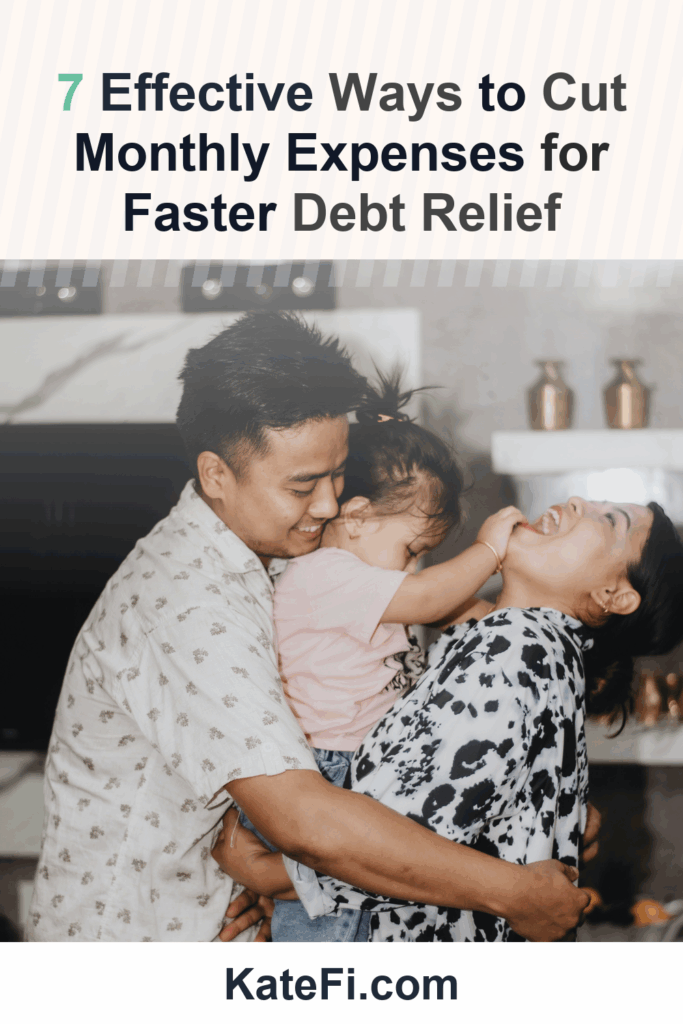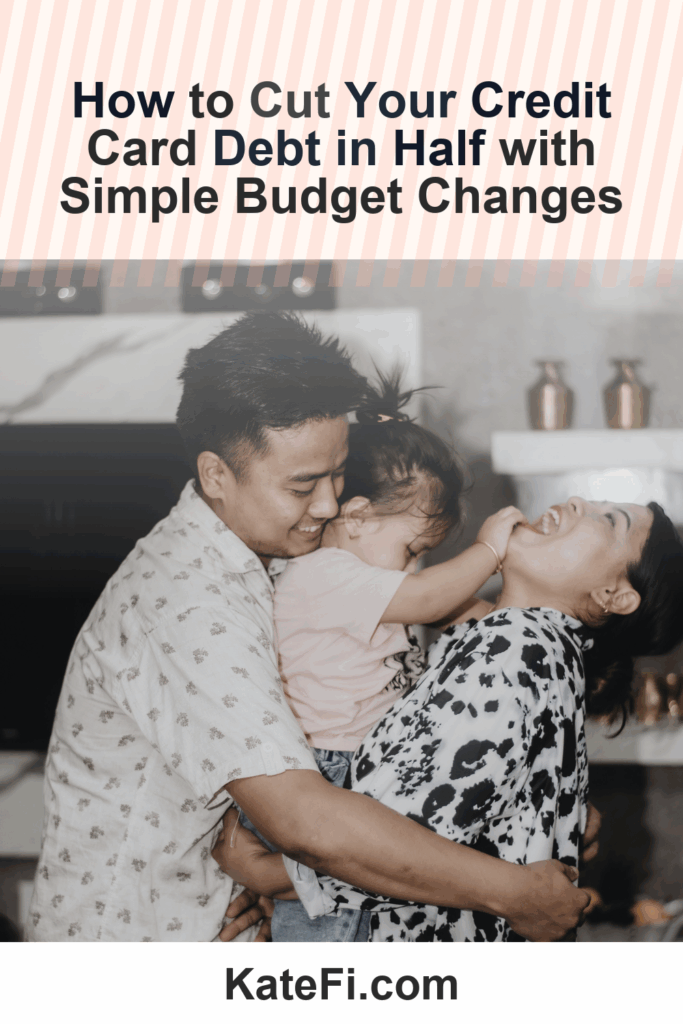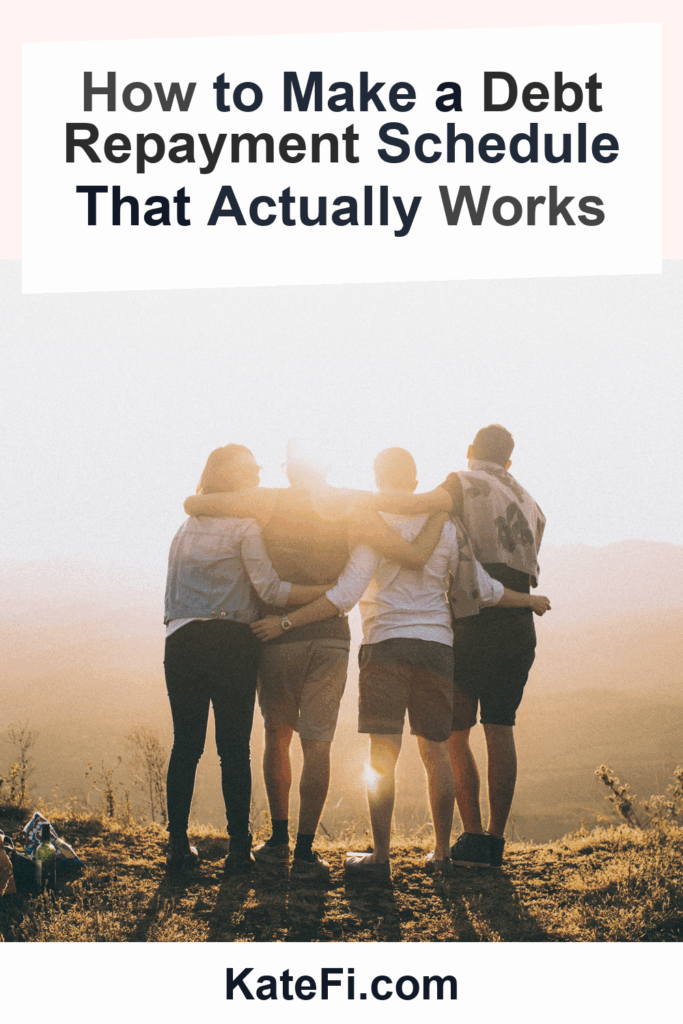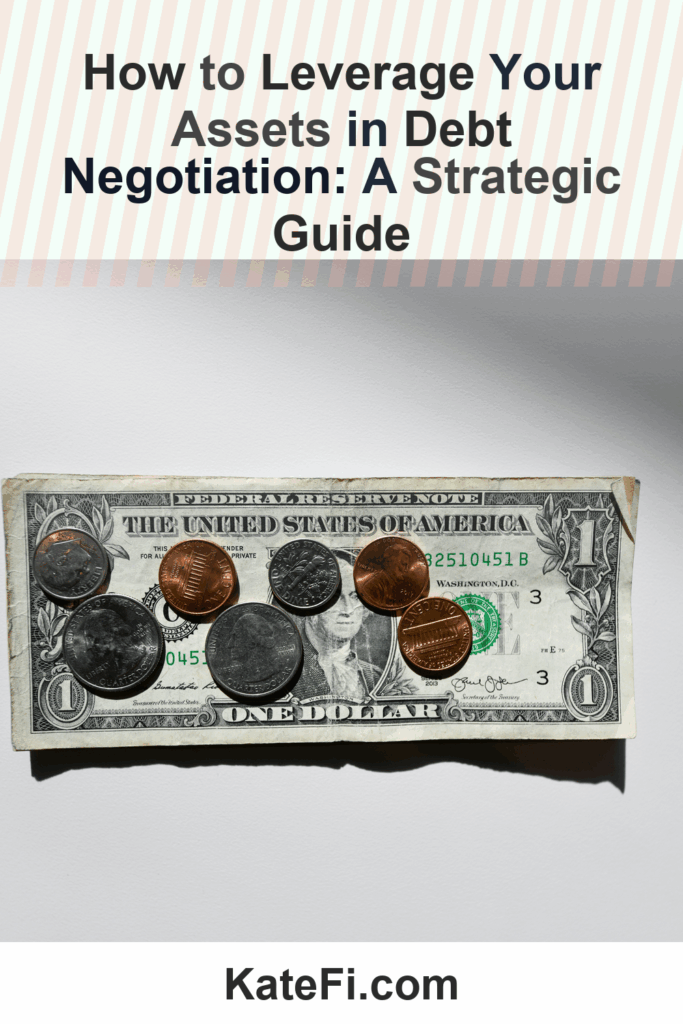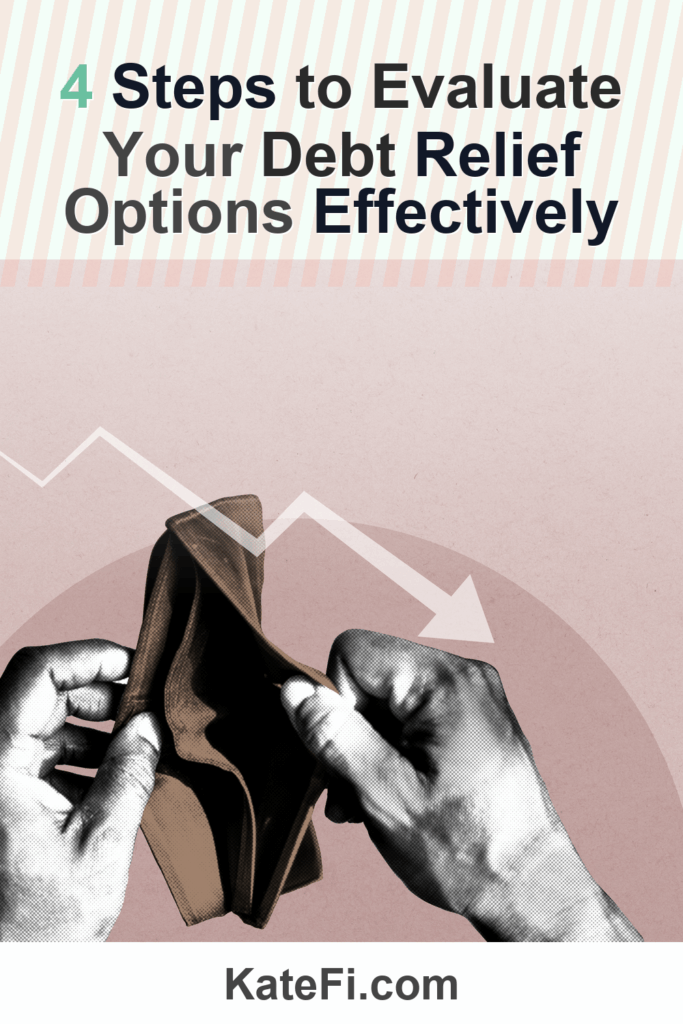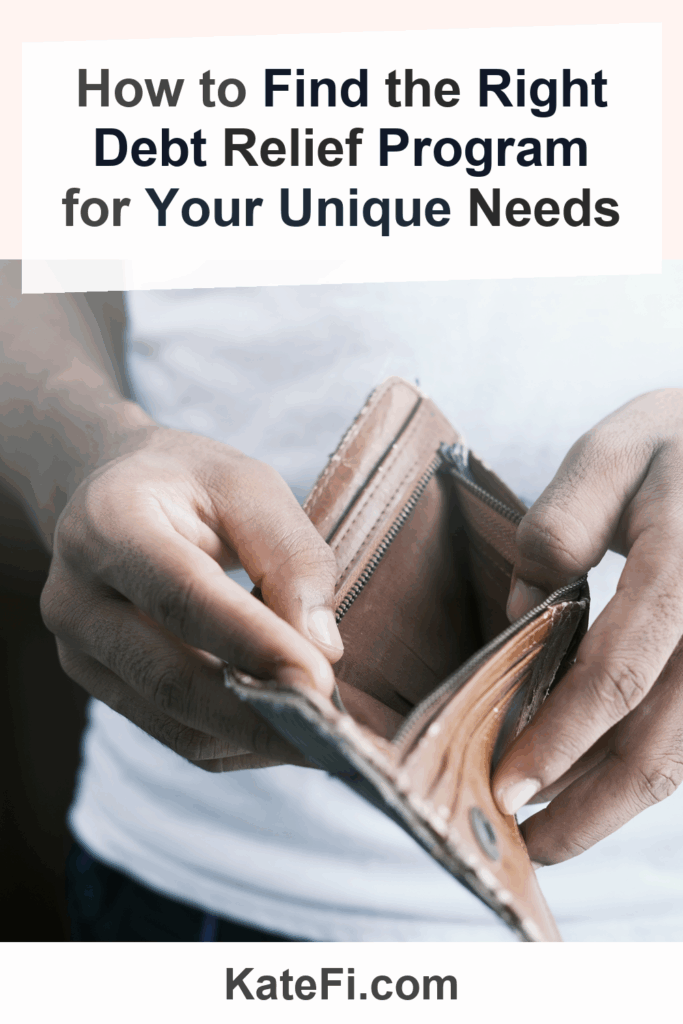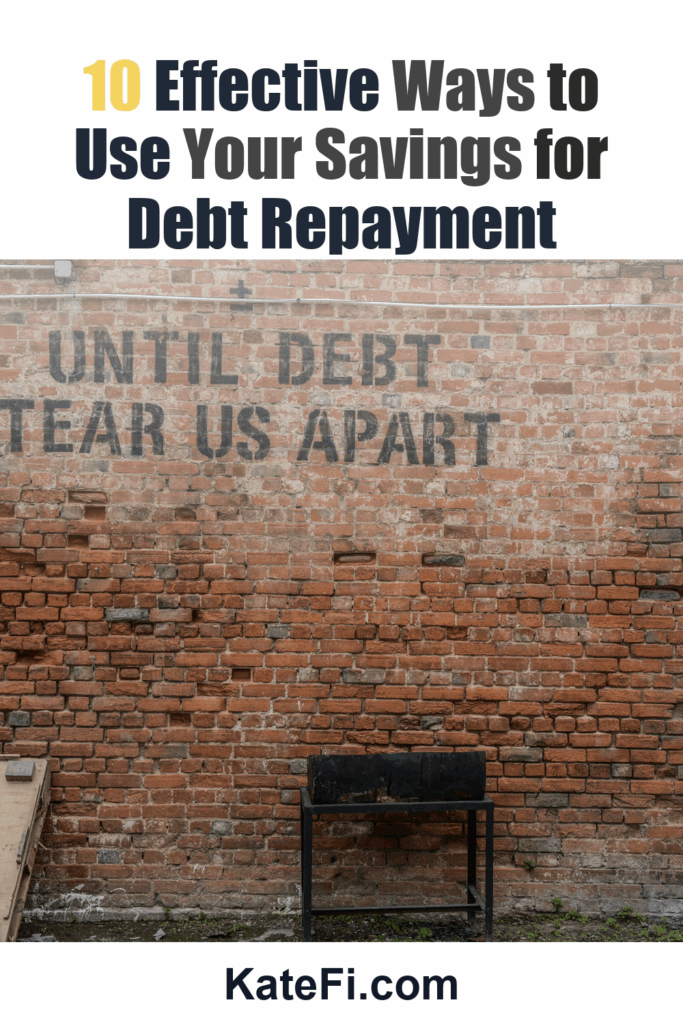Love our content? Show your support by following us — pretty please!🥺
FOLLOW ON PINTEREST
Hi! I’m Kate, the face behind KateFi.com—a blog all about making life easier and more affordable.
👉 Start Your Free Debt Relief Review
Not available in IL, KS, OR, TN, UT, WV.
5 Realistic Ways to Start Paying Off Debt Without Extra Income
Managing debt can feel overwhelming, especially when your income is already stretched thin. However, even if you’re not in a position to take on extra work or a side hustle, there are realistic strategies you can employ to start making progress on your debt. Here are five practical approaches that can help you chip away at your obligations, and some valuable resources that can guide you through this process.
1. Create a Realistic Budget
Q: What’s the first step in managing debt without extra income?
A: The cornerstone of effective debt management is a well-structured budget. Begin by tracking your income and expenses. List all your fixed and variable costs, then see where you can make cuts. A detailed budget allows you to pinpoint where your money is going and helps you allocate more funds toward your debt repayment.
Checklist to Create Your Budget:
- List all income sources (after-tax).
- Document all monthly expenses (fixed and variable).
- Identify unnecessary subscriptions and luxuries.
- Set a realistic monthly limit on discretionary spending.
By trimming your spending, even by a small amount, you can redirect those savings to debt payments.
2. Negotiate Lower Interest Rates
Q: Can I lower my debt payments without taking on more income?
A: Absolutely! Many creditors are willing to negotiate. Contact your credit card companies or lenders to discuss your situation and request lower interest rates. Explain your commitment to repaying your debts, and they may be open to reducing your rate, which can significantly reduce the total amount you pay over time.
Script for Negotiating Interest Rates:
- “Hi, my name is [Your Name]. I’ve been a customer for [X years]. I’m currently working on paying down my debt and would like to discuss the possibility of lowering my interest rate. Is there a program available for customers in my situation?”
3. Utilize the Snowball or Avalanche Method
Q: What are the snowball and avalanche methods, and which is better?
A: Both methods are effective for debt repayment, but they cater to different psychological approaches:
- Snowball Method: Focus on paying off the smallest debt first, which can provide quick wins and motivate you to tackle larger debts.
- Avalanche Method: Prioritize debts with the highest interest rates, which saves you more money in the long run.
Comparison Table: Snowball vs. Avalanche Method
| Feature | Snowball Method | Avalanche Method |
|---|---|---|
| Focus | Smallest debt first | Highest interest first |
| Psychological Benefit | Quick wins and motivation | Long-term savings |
| Time to Payoff | Potentially longer | Potentially shorter |
Deciding between these methods largely depends on your personal preference and motivation style. Choose one that resonates with you and start tackling those debts systematically.
4. Make Extra Payments with Windfalls
Q: What if I don’t have extra income? Can I still make additional payments?
A: While you may not have a regular side income, consider using any windfalls, such as tax refunds, bonuses, or monetary gifts, to make extra payments on your debt. This approach can significantly accelerate your debt repayment without affecting your monthly budget.
Checklist for Using Windfalls:
- Allocate a specific percentage to debt repayment.
- Avoid splurging on non-essentials.
- Track your progress after each payment.
5. Seek Professional Guidance
Q: Is it worth consulting a debt relief expert?
A: Yes, especially if you feel stuck or overwhelmed. A free consultation can help you understand your options better and provide tailored advice on managing your debt. At KateFi, we offer personalized support to help you navigate your financial situation. Whether it’s exploring debt relief options or creating a structured repayment plan, professional guidance can help you identify strategies that may have otherwise gone unnoticed.
✅ See If You Qualify for Debt Relief
Credit Impact and Documentation
Understanding the potential impact of debt relief on your credit score is crucial. Engaging in programs may temporarily affect your credit, but successfully paying off debt can improve your score over time. To expedite any consultations or applications for relief, gather the following documents:
- Current credit report
- Statements for all debts
- Income verification documents (pay stubs, tax returns)
- Monthly budget
Having this information readily available will facilitate a smoother review process, allowing for better-tailored advice.
Conclusion
Finding realistic ways to pay off debt without extra income is entirely possible. By following these strategies—establishing a budget, negotiating rates, employing a systematic repayment approach, leveraging windfalls, and seeking professional guidance—you can take significant steps toward becoming debt-free.
Remember, results and eligibility for relief programs can vary by individual situations and state regulations. If you’re looking for a structured path forward, don’t hesitate to reach out for a free consultation.
✅ See If You Qualify for Debt Relief
With the right strategies and support, you can regain control of your finances and work towards a brighter financial future.
Important: This content is for education only—not legal, tax, or financial advice. Results and eligible programs vary by situation and state. Fees apply if you enroll and complete a program. Debt relief can affect credit; missed payments may lead to collections/lawsuits. Not available in IL, KS, OR, TN, UT, WV.
Taking the initiative to start paying off debt is a commendable first step. It’s not always easy, but with dedication and the right resources, you can achieve your financial goals.
Understand pros/cons of settlement vs consolidation vs DMP for your exact mix of debts.
Not available in IL, KS, OR, TN, UT, WV.
Lower Your Unsecured Debt
If you have $5,000+ in credit card or personal loan debt, a free consult can review options like settlement or hardship plans.
- One-on-one call to review your debts and goals
- See potential monthly payment reductions
- No obligation to enroll
Not available in IL, KS, OR, TN, UT, WV.



